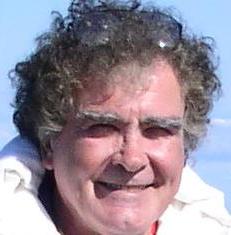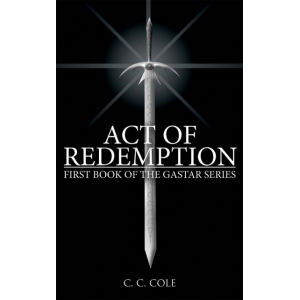- Author
- Book
- Story behind the book
- Media Links
- Reviews

Stan Hayes
About
Howdy, your dedicated, onetime, would-be Commie-killer, at your service. Quit college, mothballed my precious Snap-On tools, bade the affable motorcycle dealer, my erstwhile employer, a fond farewell, and took off for Pensacola to cast my lot with Naval Aviation. Saw a nice chunk of the world with the Navy's Hurricane Hunters and the Military Air Transport Service. Never zapped a Commie, but sniffed strong spoor during the Cuban Crisis and in the ever-fragrant Congo.
After that, the pesky last year of college, graduate school, a shot of corporate strife in New York, and a Big Apple bailout about half an hour before my liver morphed into a bookend. Now my battered skidlid sits at the edge of the Chattahoochee, where I indulge the tendency to overrev my vintage Honda VFR, sail now and then, shoot a rapid or two and generally operate at the limit of public tolerance.

My Little Angel Coloring Book
Description
<p>Does your child have a Guardian Angel?</p><p>Share a day in the life of a little girl whose tiny guardian angel named Angela sits on her shoulder to keep the child safe and guide her through the day.</p><p>Her activities include getting the girl ready for school, crossing the street, being polite and kind to friends, learning her lessons, fastening her seatbelt while traveling, being aware of stranger-danger, praying for her pets, and reminding her constantly that she is loved.</p><p>Once again social values are emphasized in this latest illustrated children's coloring book by award-winning author Sherrill S. Cannon. This is the author's third rhyming children's coloring book.</p><p>Meet many classroom friends from the author's previous books, as My Little Angel Angela guides this child throughout her day.</p><p>The author says, "This book is dedicated to our oldest son, who lost his battle with cancer in August 2021. He is my Special Angel."</p><p><strong>About The Author:</strong> Sherrill S. Cannon is the author of 10 award-winning children's books that have won nearly 100 awards (and counting), including Santa's Birthday Gift, Peter and the Whimper-Whineys, The Magic Word, Gimme-Jimmy, Manner-Man, My Fingerpaint Masterpiece, Mice & Spiders & Webs...Oh My!, The Golden Rule, My Little Angel and David's ADHD, as well as two award-winning poetry books, A Penny for Your Thoughts, and A Dime is a Sign. Her other two coloring books are Peter and the Whimper-Whineys Coloring Book and The Golden Rule Coloring Book. She is also a playwright, with seven published and internationally performed plays for elementary school children. A former teacher, the author's goal in each of her books is to teach good manners as well as caring for others.</p>
Story Behind The Book
Some time back, the History Book Club's monthly selection was Ladislas Farago's The Game of the Foxes, which told the story of World War II's Abwehr. The Abwehr was the German General staff's foreign intelligence service, presided over by Admiral Wilhelm Canaris, one of the key officers in the July 20, 1944 Hitler assassination plot. One of its chapters told the story of Simon Emil Koedel, who Farago says was Germany's best all-around agent in World War II. Koedel's reputation as a spy actually began in World War I; he immigrated to the United States in the early 1900s, was naturalized and served in the US Army. He offered his services to the Abwehr in 1915, serving its interests from his base in New York City throughout the remainder of the war. At its end, he made his way to Germany, was commissioned a Captain in the miniscule postwar Wehrmacht, and began a lengthy period of sharpening his espionage skills. After employing them against various European targets, he returned to America in 1937. A surprisingly well-funded Koedel rented a large apartment on Manhattan's Riverside Drive and went immediately to work. Two of his early coups are examples of the level of his work; intensive cultivation of a friendship with Senator Reynolds of North Carolina led to his being admitted to the prestigious American Ordnance Association, membership in which guaranteed him entrée to virtually any defense-related plant in the country. In 1940, when the German battle cruiser Graf Spee was trapped by several much smaller British vessels in Uruguay's River Plate, the Uruguayan government refused to grant the ship permanent sanctuary. When notified of this decision, the ship's commanding officer immediately took the ship and a skeleton crew clear of the port and scuttled her, committing suicide as the crew cleared the and returned to internment in Uruguay. This was, of course, a major black eye for Hitler's Reich, and he demanded immediate and full details of the incident from his Admiralty. Weeks passed, and, dissatisfied with the delayed and sketchy response, he vented his volcanic temper on the hapless naval establishment, promising the customary Nazi penalty for failure, an unpleasant death, to everyone concerned with the meager intelligence produced thus far. Admiral Canaris immediately signaled all Abwehr stations requesting an intensified effort to produce a full accounting of the Graf Spee's loss. Koedel's query to the AOA revealed that such an accounting had just been done by a blue-ribbon committee, and the voluminous report would, of course, be available to interested members. A copy, delivered by a Pam Clipper-borne Naval Attache, was in Hitler's hands beforthe week was out. Thus did Koedel become indispensable to the Nazi war effort. Unfortunately, things turned sour for the superspy in 1944, whn he was arrested in Norfolk and charged with a single act of coast-watching. He finished the war in Federal prison, but I found myself wondering, what might he have done if his luck hadn't run out? What if, for example, he'd escaped FBI surveillance, jumped into his car and headed south on US1, not stopping until the car broke down- where? In a little town a lot like the one in which I grew up...
Media Links
Reviews
<strong style="font-size:16px;"><em>On Amazon: </em>"Having chanced across this book's web site during a Google search, I bought it on the strength of Thomas Mcguane's endorsement. His off-center humor's been a longtime addiction of mine, and I figured that if he got "hours of amusement" from it, so would I. Well, I didn't know what I was getting myself into; this guy Hayes' mind certainly shares a quirk or two with McGuane's, but they definitely feed in different pastures. The Rough English Equivalent shares tones of alienation and rebellion with McGuane's work, especially the early books, but its humor's at once darker and more hopeful than the wide-open-space bleakness of which McGuane is the master. This novel, which I think is Hayes's first, has a decidedly urban cast, with airplanes and motorcycles serving in the roles of McGuane's beloved horseflesh. </strong> <p><strong><span style="font-size:14px;"><span style="font-size:16px;">Enough comparisons; what we have here is a bordering-on-black comedy set in post-World War II Bisque, Georgia, hard by the Savannah River Project plutonium plant. The Rough English Equivalent spans a decade in the lives of Serena, the striking, sensual, estranged wife of Manhattan Project scientist and a Bisque bigwig's daughter, who's itching to trade motherhood and the live-in management of her father's hotel for a sculptor's loft in New York. Jack, her ferociously apt son, puberty just around the corner, is shadowed by a Goshawk that only he can see. Having only sporadic contact with his father, he grows up in Hotel Bisque under the iconoclastic tutelage of burly Jewish entrepreneur Moses, who's actually Peter, a onetime Luftwaffe pilot, late of German intelligence, who sat out the war in Baltimore after walking away with three million bucks earmarked for Roosevelt's and Churchill's 1941 IRA assassination aboard USS Augusta. Stranded en route to Cuba by a ruptured radiator, he gets a load of Serena and drops anchor. </span></span></strong></p> <p><strong><span style="font-size:14px;"><span style="font-size:14px;"><span style="font-size:16px;">As they craft a modus viviendi, these characters smite Bisque's small-town sensibilities hip and thigh, careening down a collision course with destiny. Probing their psyches and the circumstances that shaped them, Hayes cracks the citadel of Bisque's bigoted bourgeoisie, delivering episodes that include Moses adjourning a Klan cross-burning with bazooka fire, Serena swapping his 1950 Buick's hood ornament for a replica sporting a slickly-chromed penis modeled by the sculptor from life, Jack seduced at 16 by Moses' old lover's daughter aboard a sailboat in New York Harbor and, last but not least, the Bishop sisters, psychic twins possessed by Tourette Syndrome and nymphomania, using Moses' old white limousine to stalk him, driving him nuts with implications that they know who he really is. </span></span></span></strong></p> <p><strong><span style="font-size:14px;"><span style="font-size:14px;"><span style="font-size:16px;">Increasingly restless in his Bisque sojourn, Moses fakes his death in a plane crash off the Georgia coast, goes to Havana, and all too soon joins his old Mafia cronies in flight from the Castro revolution. Jack and Moses reunite in Miami's Coconut Grove, awash in CIA types and Cuban exiles, notably Howard Hunt and Bernard Barker, gearing up for the Bay of Pigs. </span></span></span></strong></p> <p><strong><span style="font-size:14px;"><span style="font-size:16px;">This is a rich, rich piece of work. The web site quotes a reviewer as saying that it's a cross between John Irving and Louis Grizzard, and I guess I could agree with that. I could also go on, but recalling McGuane's verdict that The Rough English Equivalent's "...funny and wonderfully energetic," I'll close this out by telling you just one more thing. It's an Altman movie screaming to be made!"</span></span></strong></p>






